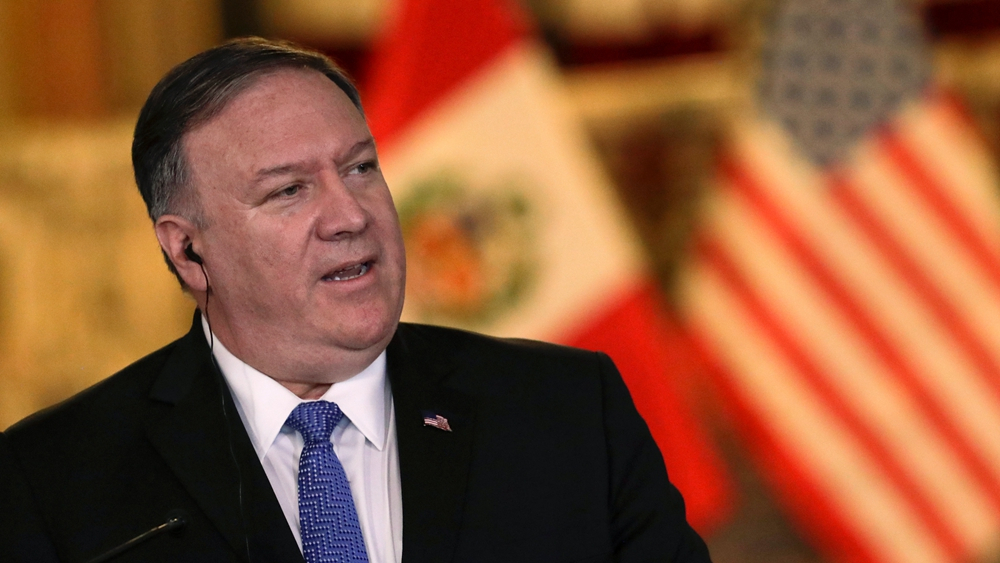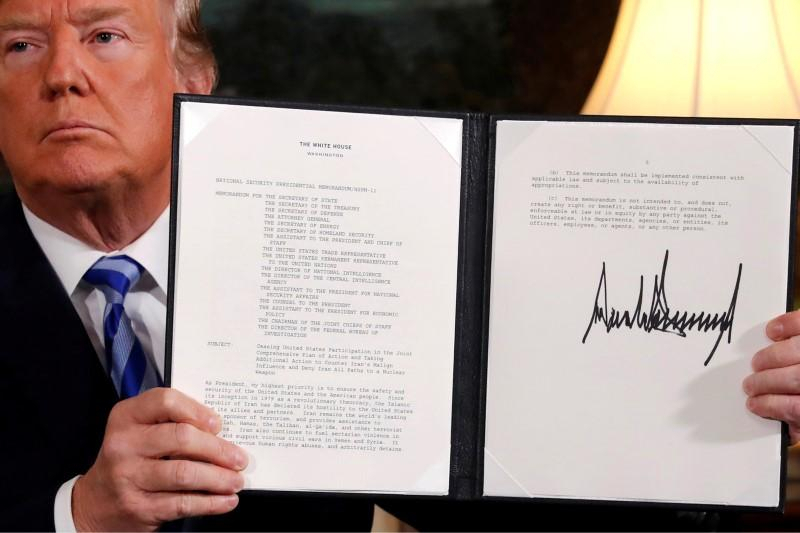

Editor's note: James DeShaw Rae is a professor from California State University Sacramento. He was also a Fulbright Scholar at Beijing Foreign Studies University from 2017 to 2018. The article reflects the author's opinions, and not necessarily the views of CGTN.
The US "maximum pressure" campaign against Iran has once again snared a Chinese company. Following accusations against Huawei and ZTE, now the U.S. has placed sanctions on Zhuhai Zhenrong and its CEO Li Youmin. The Chinese company is a major importer of crude oil from Iran and China's Foreign Ministry has expressed its anger at this imposition. Three separate yet interrelated issues are at play in this newest levy against a Chinese firm: Middle East politics, the Sino-American trade war, and international law.
First, the geopolitical hostilities in the Middle East between Iran and Saudi Arabia have roiled the region for decades and are at a zenith of animosity. The anti-Iranian sentiment in American foreign policy has resumed after a mild thaw under former U.S. president Barack Obama. Where once the Iranian nuclear deal provided a pathway to a regional detente, now we are facing the real threat of American military action.
Weeks ago, U.S. President Donald Trump wisely chose not to launch missile strikes against Iranian assets fearing the loss of life. However that perceived sign of weakness may have emboldened the Iranian government and its seizure of a British oil tanker has ratcheted up the stakes. Tehran appears to be calling the American bluff, but in reality Trump's Secretary of State Mike Pompeo or National Security Adviser John Bolton will not hesitate to use force if necessary. Of course, the American diplomatic offensive of maximum pressure is preferable to a military assault, but to what end is maximum pressure when the best deal possible was already torn up?

China-made jackets at a Manhattan department store in New York City, U.S., May 7, 2019. /VCG Photo
At a time when U.S.-China relations were stable, the former Obama administration penalized Zhuhai Zhenrong in 2012, and China and Russia were willing to tighten sanctions on Iran leading to the 2015 Joint Comprehensive Plan of Action (JCPOA) nuclear accord. Now, U.S.-China relations have been poisoned by American economic demands. Major powers do not know what American ambitions are in the Middle East, and a compromise settlement is not the ambition of the Trump administration.
Second, American penalties on Zhuhai Zhenrong escalate tensions in Sino-U.S. ties and give further evidence of why anyone must be pessimistic of returning to a normal commercial relationship between the world's two largest economies.
From the arrest warrant for Huawei CFO Meng Wanzhou to the ban on ZTE and other firms, the U.S. is showing little sign of seeking a negotiated settlement to the broader dispute on trade and investment. In fact, undermining the coming restart of bilateral talks suggests that pressuring Iran is a higher priority, or perhaps the American side is adopting a killing two birds with one stone approach.
The ongoing damage to U.S.-China relations is incalculable, and few may reasonably expect an improvement before the end of President Trump's term in office. Public opinion in China is hardening toward this American assault on China's economy and walking back all of these U.S. policies grows harder by the day.

U.S. President Donald Trump displays an executive order imposing fresh sanctions on Iran in the Oval Office of the White House in Washington, U.S., June 24, 2019. /VCG Photo
Finally, the application of extraterritoriality in international law is highly suspect and a violation of national sovereignty. Like the Helms-Burton Act of the 1990s seeking to sanction European countries and others from doing business with Cuba, the American penalties on Iran do not simply forbid U.S. firms from doing business with Iran but they apply to all countries. Unlike UN sanctions to which nation-states have consented to be bound, one nation's legislative acts cannot criminalize another's commercial and diplomatic acts.
Thus, the criminal and civil jeopardy placed upon Chinese individuals, private companies, and state-owned enterprises is entirely dubious. Indeed, in harkening back to its former 19th century application to enforce Western laws in colonized or occupied countries, extraterritoriality is a vestige of great power imperial manipulations and a remembrance of national humiliation in much of the colonized world.
In the final analysis, such sanctions made sense when the U.S. sought a deal to prevent Iran developing weapons of mass destruction. The deal was consummated in 2015, and widely accepted as the best deal possible, which it was and is. President Trump ravaged that agreement as the worst in American history and was thus compelled to withdraw from it in 2018, but with no strategy to replace it.
Such sanctions now provide little utility, for what better deal is attainable; instead such policies are driving Washington toward military action in the Middle East while unnecessarily undermining the chances for improved dialogue on U.S.-China trade, and violating international law in so doing.
(If you want to contribute and have specific expertise, please contact us at opinions@cgtn.com.)

Copyright © 2018 CGTN. Beijing ICP prepared NO.16065310-3
Copyright © 2018 CGTN. Beijing ICP prepared NO.16065310-3